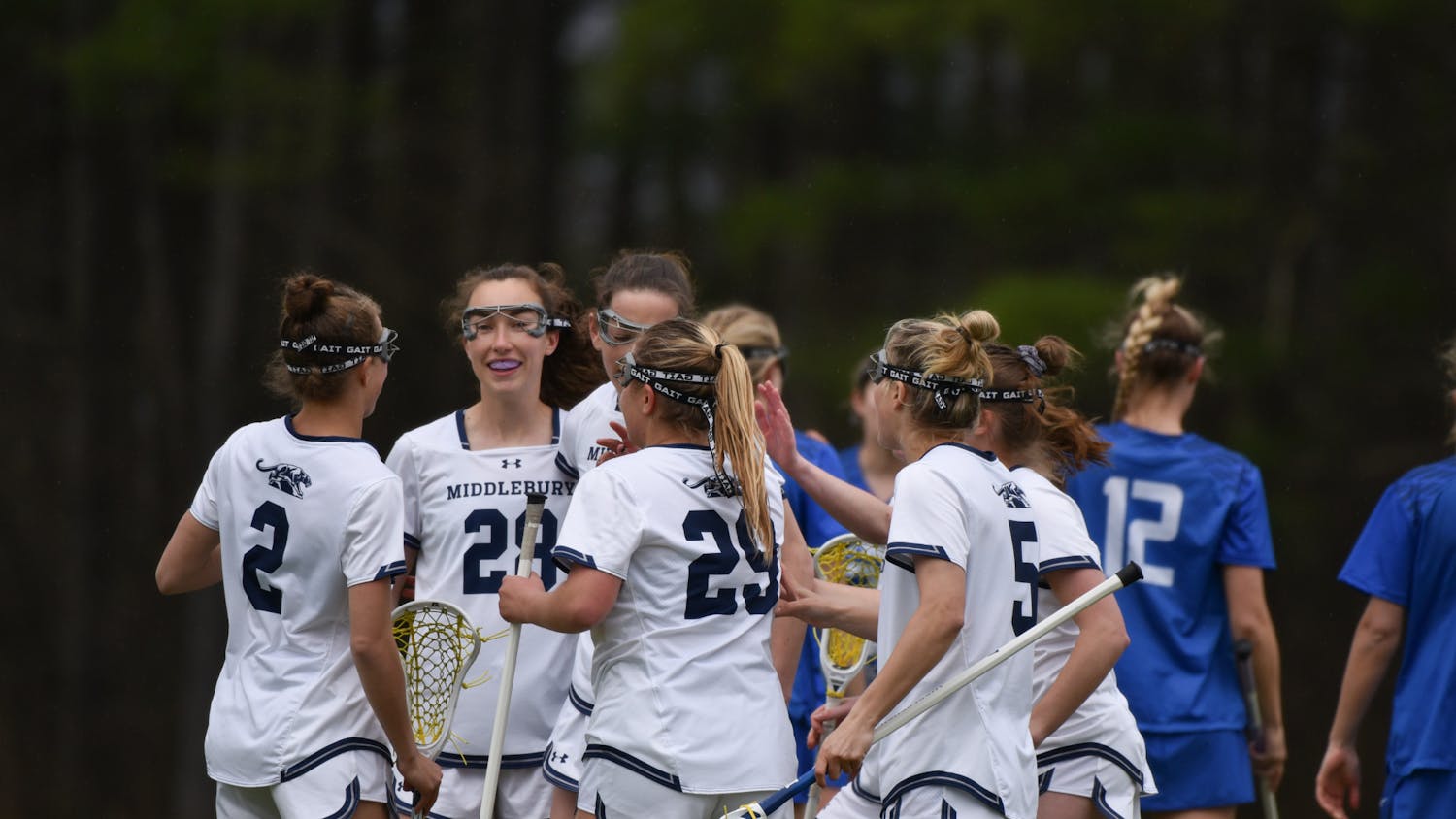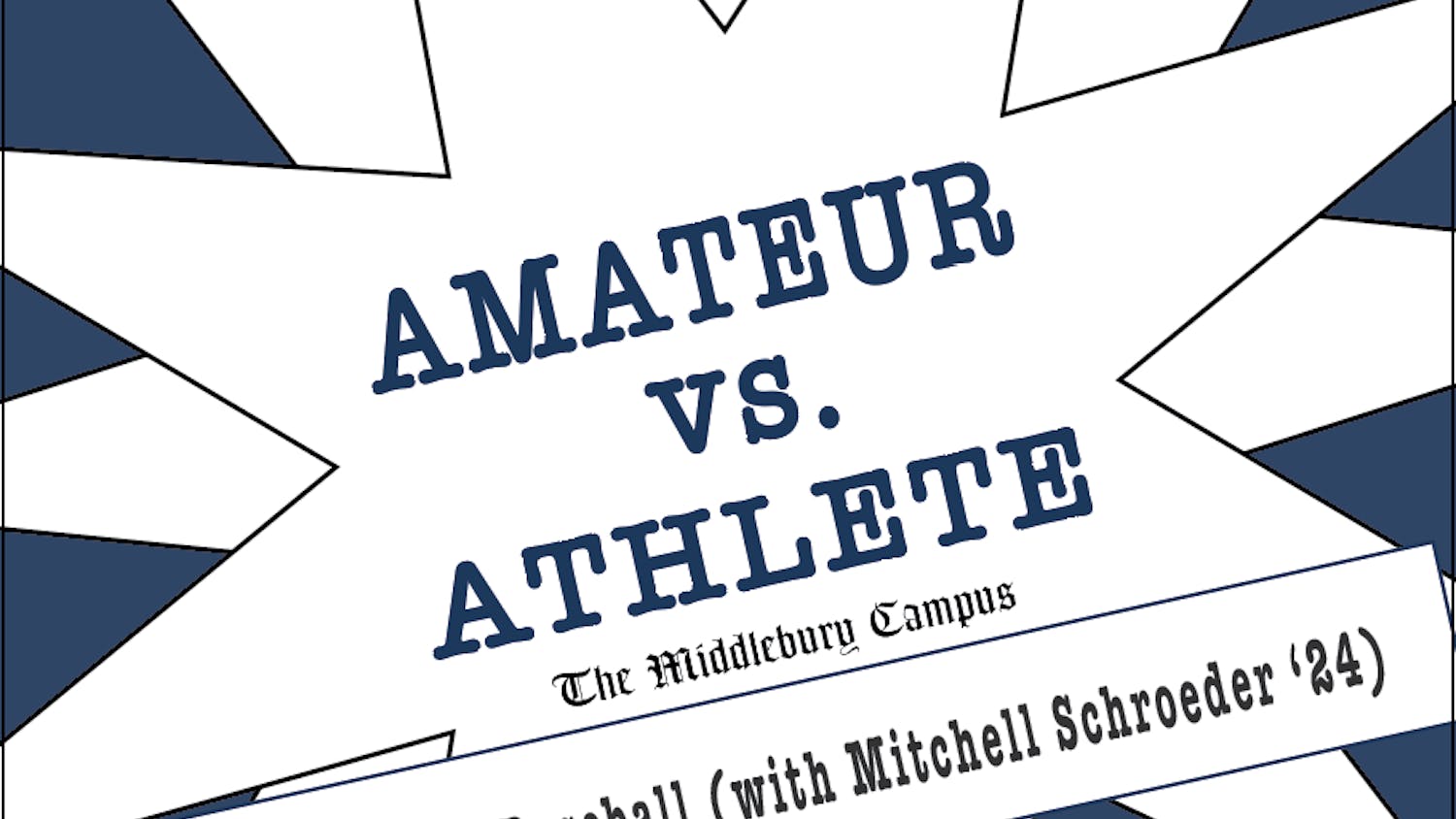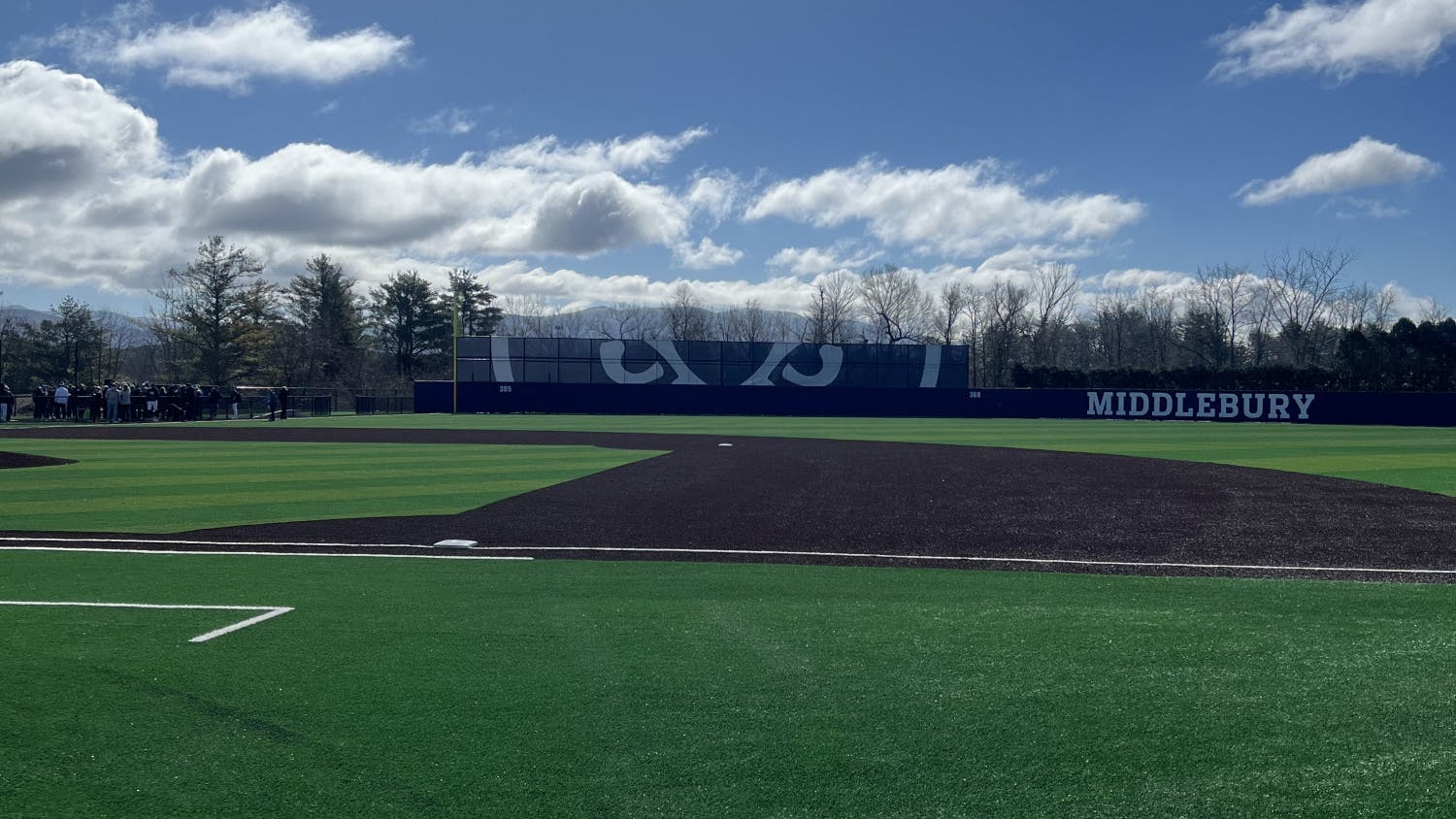When I arrived at Middlebury four years ago, I knew that I wanted to write for the newspaper. A lifelong sports fan — and former varsity athlete adjusting to life as a NARP (I briefly entertained notions of trying to walk on to the football team before enjoying a brief, but formative career playing ultimate frisbee) — I figured this was the perfect opportunity for me to write about topics and teams that interested me. But not Middlebury athletics — I wasn’t the least bit interested in Division III sports or their place at this school. In other words, I got to Middlebury with the intention of being The Campus’ Bill Simmons.
Today, almost four years later, I can think of nothing better to write about than the experiences that I have had and the athletes I have covered at Middlebury who have transformed the way that I write, think and talk about sports.
I got to the College in February 2010, my arrival at this school aligning almost perfectly with the rise of the men’s basketball program and the extended golden age of the women’s hockey team — an unlikely marriage between two programs that share more in common than might meet the eye.
As a former athlete most often relegated to the end of the bench, I have an affinity for teams that overachieve and athletes who compete like they’ve just spent a while sitting next to me. And no two teams that I’ve watched and covered in the pages of this newspaper embody that spirit like the Middlebury men’s basketball and women’s hockey teams.
So when I look back at my time at Middlebury I will return to the days I spent in Pepin and Kenyon, sometimes watching, but more often broadcasting their respective games, enthralled by the fierce, bordering on reckless competitiveness of a Joey Kizel ’14 or Emily Fluke ’15; the shot-blocking dominance of Lexi Bloom ’11 and Andrew Locke ’11; the tremendous two-way play of Madison Styrbicki ’13, rivaled only by the flawless defense and smooth shooting of Nolan Thompson ’13; and the offensive genius of Lauren Greer ’13 and Ryan Sharry ’12, two players who played the way every athlete strives to — by accomplishing the immensely difficult with apparent ease.
Nor did it hurt that both teams played games with moments that will forever be seared in my mind. For the men’s basketball team, those memories are multiple and typically end in cruel fashion, thereby becoming all the more indelible: Kizel’s hanging, floater with seconds remaining to tie Scranton in the Sweet 16, only to be outdone by Travis Farrell’s three at the buzzer to end Middlebury’s NCAA Tournament hopes in 2012; the intentional miss and put-back from Amherst’s Willy Workman in Middlebury’s triple-overtime loss to the hated Lord Jeffs; and Nolan Thompson’s final shot to beat St. Thomas in the Final Four in Salem, Va. that would have sent Middlebury to the national championship game in 2012, only to clank off the front rim.
For the women’s hockey team, it is a singular memory — and one void of tragic appeal. When my dad came to visit me in March, 2012, I took him to the team’s NESCAC title game. And though neither of us are hockey fans —he probably can’t distinguish icing from offsides — the level of competition and sense of unity that emanated from the ice made a Middlebury women’s hockey fan out of him and inscribed a newfound respect in me for those athletes, many of whom were playing in the biggest game of their lives in front of a sparse crowd. That Greer won the game in overtime with the game’s only goal, followed by as genuine a celebration as I have ever witnessed, completed the pensive-worthy memory.
Following graduation — a mere eight days away — I hope to eventually cover teams across the country and on the national stage. But years from now, I will look back on my four years at Middlebury and the time I worked at The Campus and recall the players and games that made the men’s basketball and women’s hockey teams resonant.
So before I go, I will pay homage at least once more to these two teams that have always made a former athlete, who spent more time on the bench than he would have liked, somehow feel connected to their performance.
DAMON HATHEWAY is a Sports Editor from London



